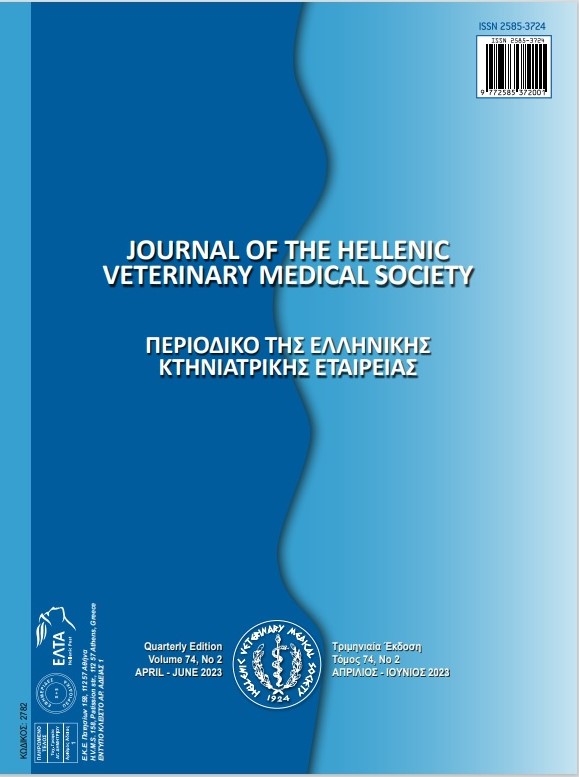The effects of ad - libitum consumption of chitosan oligosaccharide with drinking water on laying quails
Abstract
The aim of this study was to determine the effects of chitosan oligosaccharide on feed conversion ratio, some egg quality parameters, and some blood parameters in Japanise quails. Chitosan oligosaccharide (ChitO) was added to the drinking water of quails. A total of 192 (7 – 8 weeks old) Japanese quails (Coturnix coturnix Japonica) were divided into one control and 3 treatment groups, each consisting of 48 quails. Each group was divided into 6 replicates. While no additive was added to the control group, ChitO was added to the drinking water of the first, second, and third groups at the levels of 0.015, 0.030 and 0.045 g / L, respectively. They were given water and feed ad libitum. At the end of the study, no significant differences were observed between the control and treatment groups, except in their feed consumption and egg shell weight. In the first treatment group (given 0.015 g / L ChitO), it was observed that feed consumption decreased significantly compared to the control group; however, the difference between the other treatment groups was insignificant. The egg shell weight of the second treatment group (0.030 g / L ChitO) was found to be significantly higher (p < 0.05) than that of the control group. In general, consumption of chitosan oligosaccharide with drinking water tended to decrease feed consumption, without adversely affecting feed efficiency, and tended to increase eggshell weight.
Article Details
- Zitationsvorschlag
-
Kiraz, C., & Buğdayci, K. (2023). The effects of ad - libitum consumption of chitosan oligosaccharide with drinking water on laying quails. Journal of the Hellenic Veterinary Medical Society, 74(3), 6143–6152. https://doi.org/10.12681/jhvms.30916
- Ausgabe
- Bd. 74 Nr. 3 (2023)
- Rubrik
- Research Articles

Dieses Werk steht unter der Lizenz Creative Commons Namensnennung - Nicht-kommerziell 4.0 International.
Authors who publish with this journal agree to the following terms:
· Authors retain copyright and grant the journal right of first publication with the work simultaneously licensed under a Creative Commons Attribution Non-Commercial License that allows others to share the work with an acknowledgement of the work's authorship and initial publication in this journal.
· Authors are able to enter into separate, additional contractual arrangements for the non-exclusive distribution of the journal's published version of the work (e.g. post it to an institutional repository or publish it in a book), with an acknowledgement of its initial publication in this journal.
· Authors are permitted and encouraged to post their work online (preferably in institutional repositories or on their website) prior to and during the submission process, as it can lead to productive exchanges, as well as earlier and greater citation of published work.



